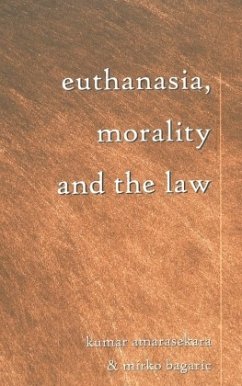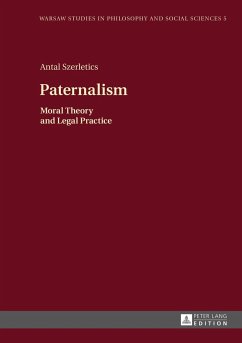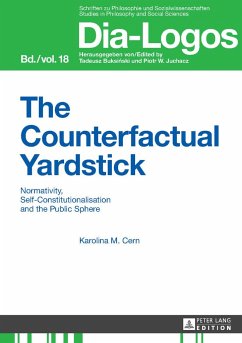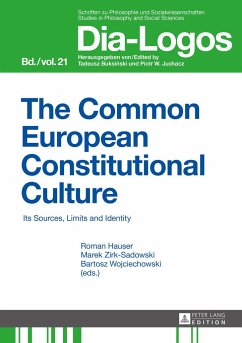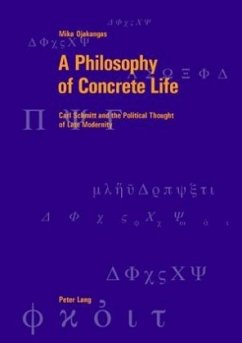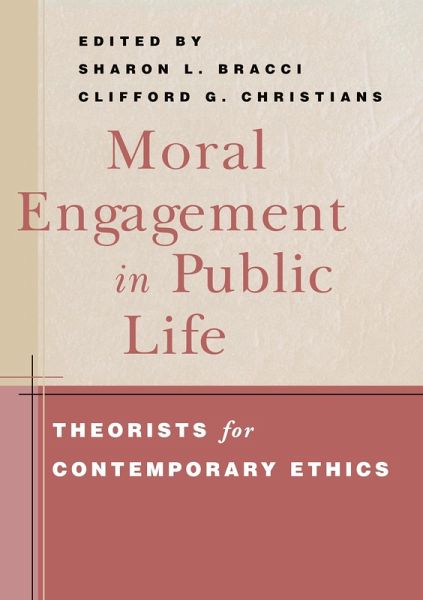
Moral Engagement in Public Life
Theorists for Contemporary Ethics
Herausgegeben: Bracci, Sharon L.; Christians, Clifford G.
Versandkostenfrei!
Sofort lieferbar
40,50 €
inkl. MwSt.

PAYBACK Punkte
0 °P sammeln!
Ethical evaluation of language and action has relied historically on the western, monocultural assumptions of classical ethical theory. But persistent contemporary critiques undermine the moral force of ethical agency as individualistic, autonomous, and rationalistic. Contributors to Moral Engagement in Public Life take up the search for intellectual resources in light of these challenges by explicating twelve theorists in moral philosophy and communication ethics. Two classical theorists, Aristotle and Confucius, provide longstanding themes of ongoing relevance and serve as a point of departu...
Ethical evaluation of language and action has relied historically on the western, monocultural assumptions of classical ethical theory. But persistent contemporary critiques undermine the moral force of ethical agency as individualistic, autonomous, and rationalistic. Contributors to Moral Engagement in Public Life take up the search for intellectual resources in light of these challenges by explicating twelve theorists in moral philosophy and communication ethics. Two classical theorists, Aristotle and Confucius, provide longstanding themes of ongoing relevance and serve as a point of departure for ten contemporary thinkers whose own perspectives are, in part, a response to classical thought in the current context. Together these theorists expand the conceptual domain crossculturally and internationally for understanding ethical discourse and action in practical and professional life.



